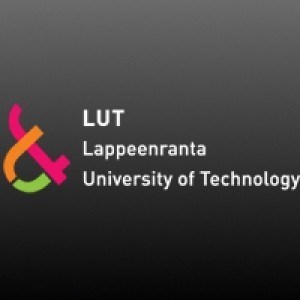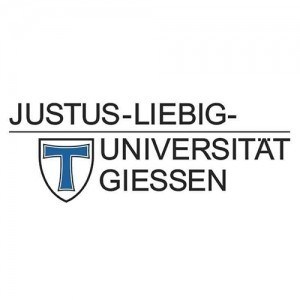Photos of university / #universityofhelsinki
Environmental Change and Global Sustainability is a multidisciplinary master's programme offered by the University of Helsinki that prepares students to understand and address the complex challenges of environmental transformation in the 21st century. This programme provides a comprehensive education in ecological, social, economic, and political aspects of environmental change, equipping graduates with the skills needed to develop sustainable solutions at local, national, and global levels. Students will explore themes such as climate change, biodiversity loss, resource management, environmental policy, and sustainable development, gaining both theoretical knowledge and practical experience. The curriculum combines natural sciences, social sciences, and humanities to foster critical thinking and innovative problem-solving abilities. Through rigorous coursework, fieldwork, and collaborative projects, students develop a holistic perspective on sustainability issues, enabling them to analyze environmental problems from multiple angles and propose effective strategies for mitigation and adaptation. The programme emphasizes an active learning environment, encouraging students to engage with current research, policy debates, and stakeholder perspectives. Graduates of the programme are well-prepared for careers in environmental consultancy, international organizations, research institutes, government agencies, and NGOs, where they can contribute significantly to shaping sustainable policies and practices. The University of Helsinki's international faculty, vibrant student community, and extensive network of partner organizations provide a rich contextual background for learning and professional growth. With a focus on real-world applications and interdisciplinary approaches, Environmental Change and Global Sustainability offers a unique opportunity for students passionate about making a positive impact on the planet. This programme is suitable for those holding a bachelor's degree in environmental sciences, social sciences, natural sciences, or related fields, and who aspire to become leaders and innovators in sustainability. Join us to develop the expertise and mindset necessary to meet the environmental challenges of today and tomorrow.
ECGS is a truly multidisciplinary Master’s programme. It covers an introductory Core Module common to all students, followed by two distinct study tracks.
The introductory Core Module focuses on the methodologies of environmental and sustainability science as well as the interactions between science and society. The Core Module also offers a pool of optional methodological studies, providing you with the necessary research tools to tackle socio-ecological challenges.
If your orientation is in natural sciences, the Environmental Change study line can provide you with an understanding of the functioning of terrestrial and aquatic ecosystems and can give guidance toward their sustainable use.
If your interests are more in the social sciences and humanities, on the other hand, the Global Sustainability study line provides an understanding of the socio-cultural underpinnings of global sustainability challenges so that you can help to develop solutions that take social and environmental justice into consideration.
You can apply for one of the two studytracks in the ECGS Master’s programme: the Environmental Change study line or the Global Sustainability study line. You can refine your expertise in your chosen study line by choosing from study modules related to your specialised field of science or from interdisciplinary phenomenon-based modules.
Environmental Change modules are offered in, for example, the following research fields: aquatic sciences, soil and earth sciences, environmental ecology, environmental biotechnology and agroecology. Global Sustainability modules include themes such as environmental and natural resource economics, environmental policy, development studies, public and social policy, consumer research, forest policy and economics, and development geography. ECGS also offers a variety of modules integrating both natural and social scientific perspectives including phenomenon-based modules on the Baltic Sea and the Arctic as well as a variety of interdisciplinary fields such as climate change, food and consumption systems, urban studies and socio-ecological systems studies.
As an international applicant, you will be assessed and accepted for the Master’s program based on the scientific relevance of your bachelor’s degree and your success in previous studies.
You will graduate with a Master’s degree in Science (M.Sc.) or Social Sciences (M.Soc.Sc.). Your Master’s degree (120 credits, ECTS) will consist of the following studies:
- Advanced studies, 60 credits, including your Master’s thesis (30 credits)
- Other studies, 60 credits, including 30 credits of Core Module studies and 30 credits of elective science specific studies from either ECGS modules or other relevant Master’s programs.
During your second year you will write an individual Master’s thesis (30 credits). The Master’s thesis is a proving ground there you demonstrate your capabilities in scientific thinking, methodological research and scientific communication and writing. During the writing process you will also attend a Master’s thesis seminar headed and instructed by a faculty member with expertise in your particular field.
Minimum criteria for admission
You may be admitted if
- You meet the specified eligibility requirements
- You demonstrate your eligibility within the specified deadline
- You submit the application and the required attachments within the specified deadline.
Further information on eligibility requirements can be found in the section entitled “Eligibility”. Further information on submitting the required attachments can be found in the section entitled “Required attachments”.
Admissions procedure
If you do not meet the minimum criteria for admission listed above, you cannot be admitted. The below-described admission criteria apply to applicants who meet the minimum criteria for admission.
Admissions to the ECGS programme are based on the following criteria, each of which will be scored on a scale of 0–10:
- Applicability of previous studies to the ECGS programme
- Academic performance (grades, study progress) in completed applicable studies required for the ECGS programme
- Motivation letter
The required minimum score for each criterion is 6.
Applicants must have completed at least a first-cycle degree in a field applicable to the Master’s programme. In order for the studies completed for the degree serving as the grounds for application (or any studies completed to supplement this degree) to provide sufficient qualifications and knowledge for the completion of Master’s studies, their content and level must be applicable and appropriate for the Master’s programme and its disciplines. The applicability and sufficiency of these studies will be assessed during the admissions procedure. The University of Helsinki does not provide any preliminary evaluation on the suitability of the applicant’s previous studies.
In the application form you must specify the degree you apply for. You can choose from the following degrees: Master of Science (Faculty of Science), Master of Science (Agriculture and Forestry) (Faculty of Agriculture and Forestry) or Master of Social Sciences (Faculty of Social Sciences). Your choice of study track affects the degree that you can choose (see above the section "Study right to be awarded"). You can select only one degree you apply for. In the application form you must also choose the study track to which you apply. The study tracks are A) Environmental Change B) Global Sustainability. You can only apply to one study track.
Applicants with a second-cycle degree in the same or related field will only be taken into consideration for compelling reasons and if the targeted degree is sufficiently different from their previously completed degree. As a rule, second-cycle degrees are used as grounds for applying for a right to complete a postgraduate degree.
The assessment is based on the studies applicants have completed by the end of the application period.
In the event the programme quota cannot accommodate all applicants who have completed studies applicable to the degree programme, a comparison between the applicants will be made. Only the best applicants will be accepted. There is no requirement for the programme to fill its admission quota.
If two or more applicants are tied after the evaluation, they will be ranked firstly on the basis of applicable studies, secondly on the basis of academic performance and thirdly on the basis of the motivation letter.
Documents
The application must be accompanied by the following documents and the documents must be submitted as instructed below:
- Officially certified copy of the degree certificate/diploma
- Official transcript of studies that demonstrates i) the applicability of your previous studies into this Master's programme ii) your academic performance and iii) the duration of your studies
- Certificate of language proficiency
- Authorised translations
- A photocopy of your passport OR your Finnish residence permit card
- Motivation letter to be included in the application form
- A diploma supplement (if available)
- Fully Funded Grant (Tuition fee + 10 000 EUR)
- Full Tuition fee Grant
- Study Grant (10 000 EUR)
Tuition fees range from 13 000 to 18 000 euros.
The scholarship will be granted for two years. For all scholarships, students are required to study full time (earn at least 55 ECTS per year) to fulfil the requirements of the scholarship. After the first study year, your studies will be evaluated and, depending on your progress, the scholarship will be continued.
All candidates must meet the following requirements:
- You are eligible for the Master’s programme at the University of Helsinki.
- You are liable for tuition fees: Citizens of non-EU/EEA countries who do not have permanent residence status in the EU/EEA area are liable for tuition fees. You can check the FAQ at the Studyinfo website as to whether or not you are required to pay tuition fees.
- You meet the requirements for obtaining an entry visa and residence permit for Finland.
- You have obtained excellent results in your previous studies and can prove this in your application.
How to apply for a Be 1* of the Best scholarships
- Find the Master's programme you want to apply to through the Degree Finder
- See the instructions on how to apply to the Master’s programme and prepare the necessary attachments.
- Apply for a scholarship with the same application form used to apply to the Master's programme.
- Submit all the required attachments.
Selection process
Scholarships are granted based on academic merit.
- The Master's programme conducts an academic assessment of your degree application and your scholarship application.
- The Master's programme makes a proposal to the Scholarship Committee concerning the scholarship application.
- The Scholarship Committee makes the final decision on the scholarship.
If you are awarded a scholarship, you will receive an official acceptance letter with the information about your scholarship status.
The Master's Degree Programme in Environmental Change and Global Sustainability at the University of Helsinki offers students a comprehensive and interdisciplinary education focused on understanding and addressing the complex challenges related to environmental change and sustainability on a global scale. The program aims to equip students with the knowledge, skills, and analytical tools necessary to analyze environmental issues, develop sustainable solutions, and contribute to policy-making processes. It combines theoretical lectures, practical exercises, fieldwork, and research projects, allowing students to engage with real-world environmental problems through a variety of perspectives including ecology, economics, political science, and social sciences. Students will explore topics such as climate change, biodiversity loss, pollution, resource management, renewable energy, and sustainable development goals set by international organizations. The curriculum emphasizes critical thinking, interdisciplinary collaboration, and problem-solving skills essential for working in diverse settings such as government agencies, NGOs, research institutions, and the private sector. The program also promotes international exchange opportunities and encourages students to participate in international research networks, enabling them to gain global perspectives and build a professional network. Graduates of the programme are well-prepared for careers in environmental policy, consultancy, research, and advocacy, addressing the pressing sustainability challenges faced by society today. The University of Helsinki’s strong emphasis on research, combined with its international reputation and extensive partnerships, provides students with access to cutting-edge knowledge and opportunities to contribute to global sustainability initiatives. The program’s multidisciplinary approach ensures students develop a holistic understanding of environmental issues and are capable of creating innovative and sustainable solutions for a resilient future.









